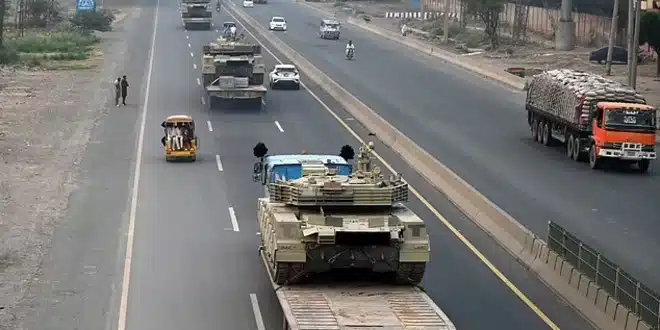Tensions between India and Pakistan have escalated to levels unseen in decades following a series of military confrontations and retaliatory actions. The latest developments were triggered by a deadly attack on April 22 in Pahalgam, Indian-administered Kashmir, where 26 tourists, predominantly Hindus, were killed.
India attributed the assault to the Resistance Front, an offshoot of the Pakistan-based Lashkar-e-Taiba, intensifying the already strained relations between the two nuclear-armed neighbors.
Military Engagements and Civilian Impact
In response to the Pahalgam attack, India launched “Operation Sindoor” on May 6, targeting nine locations in Pakistan and Pakistan-administered Kashmir identified as terrorist infrastructure. The Indian government emphasized that the strikes were precise and aimed solely at non-military targets. However, Pakistan reported that the attacks resulted in the deaths of 26 civilians, including children, and injuries to 46 others. Among the sites hit was a mosque in Muzaffarabad, leading to further condemnation from Islamabad.
Pakistan retaliated by claiming to have downed five Indian fighter jets and one drone, with wreckage reportedly found in Indian-controlled Kashmir and Punjab. India acknowledged the loss of three aircraft within its territory but did not confirm the circumstances. Additionally, both nations have engaged in heavy artillery exchanges along the Line of Control (LoC), resulting in further casualties. In the Indian town of Poonch, at least eight civilians were killed and 29 injured due to shelling from the Pakistani side.
Diplomatic Fallout and International Reactions
The military confrontations have been accompanied by significant diplomatic repercussions. India suspended the Indus Waters Treaty, closed the Attari-Wagah border crossing, and imposed travel bans on Pakistani nationals. Pakistan responded by suspending the 1972 Shimla Agreement, closing its airspace to Indian flights, and expelling Indian diplomats. Both countries have also engaged in tit-for-tat measures, including the suspension of trade and the downgrading of diplomatic ties.
International leaders have expressed deep concern over the escalating situation. United Nations Secretary-General António Guterres urged both nations to exercise maximum restraint, emphasizing that the world cannot afford a military confrontation between India and Pakistan. The United States, China, Russia, and the United Kingdom have also called for de-escalation and a return to dialogue. Iranian Foreign Minister Abbas Araghchi has visited both Islamabad and New Delhi in an attempt to mediate the crisis.
Historical Context and Ongoing Risks
India and Pakistan have a long history of conflict, having fought multiple wars since their independence in 1947, primarily over the disputed region of Kashmir. The current escalation is reminiscent of the 2019 Pulwama-Balakot crisis but is considered more severe due to the scale of military engagements and the breakdown of diplomatic channels. Both nations possess significant nuclear arsenals, with India adhering to a “no first use” policy and Pakistan reserving the right to use tactical nuclear weapons if it perceives an existential threat.(apnews.com)
Analysts warn that the continued military exchanges and lack of effective communication channels increase the risk of miscalculations that could lead to a broader conflict. The international community continues to monitor the situation closely, emphasizing the need for immediate de-escalation and the resumption of diplomatic dialogue to prevent further deterioration of regional stability.


